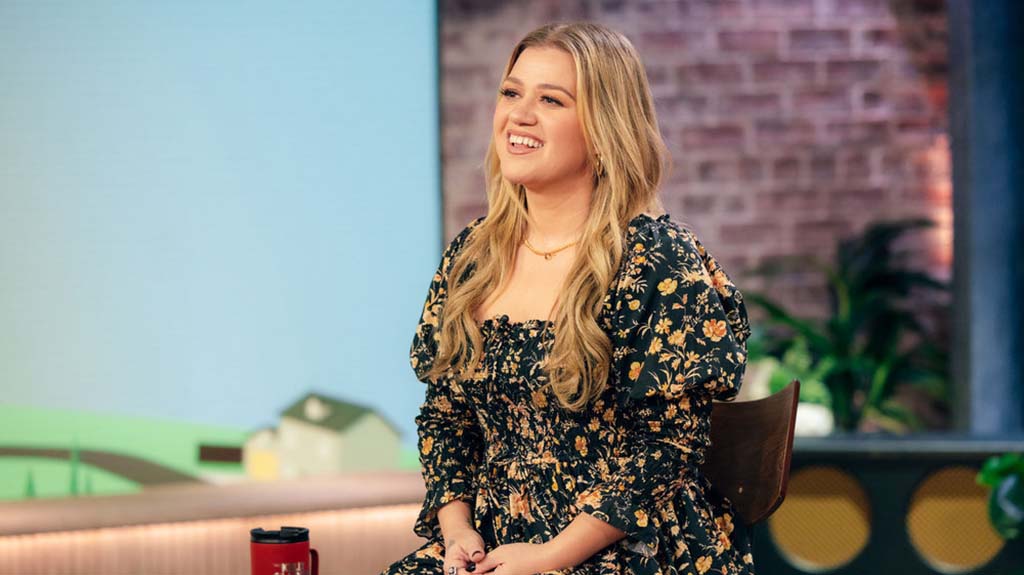
As 2023 comes to a close, syndication’s one big swing for 2024 looks to be Debmar-Mercury’s talker starring and executive produced by Ken Jeong. Other potential offerings include a true-crime strip from Warner Bros. Discovery’s Telepictures, one or two shows from Sinclair and possibly new games from CBS Media Ventures and Sony Pictures Television.
It’s early, though, as station groups and studios are making budget decisions before deciding whether to go forward with their latest projects.
Producers and their station partners face a paradox. TV stations have plenty of room for new shows, particularly because many stations are airing repeats of out-of-production shows — such as Judge Judy, Dr. Phil, Maury, Jerry Springer and various court shows — and double- and triple-running these and other programs. But stations don’t feel they can afford to pony up cash for new original fare — especially in low-rated daytime — even though they could clear the space for it.
Producers also are unwilling to bring shows to the market unless there’s a strong sense they can be profitable.
“To be successful, the shows need to be sustainable. The general principle is that you can’t go into this business with blinders on, pretending that there’s a path to success when there isn’t,” Sinclair chief innovation officer Scott Ehrlich said.
“It’s a math problem,” Fox Television Stations executive VP, programming and development Stephen Brown said. “You have to come up with good [intellectual property] and then you have to back into the number that it’s going to get. You have to be fiscally responsible.”
That’s a marked difference from the days when producers would just take a chance, do some marketing and cross their fingers that daytime viewers would show up and turn their program into a hit.
“Stations are looking at their bottom lines and saying, ‘Why are we paying money for something that’s going to get a 0.1 or 0.2 in the demo?’ ” Brown said. “The market is what the market is.”
Some Shows Still Get Cash
That’s not to say that there are no shows for which stations will pay cash. Cash changes hands for all of the big-name talk shows, including Disney’s Live With Kelly and Mark, NBCUniversal’s Kelly Clarkson, CBS’s Drew Barrymore, Warner Bros. Discovery’s Jennifer Hudson and Debmar-Mercury’s Sherri.
Debmar-Mercury thinks stations will pay cash for its project with Ken Jeong, who stars on Fox’s The Masked Singer and I Can See Your Voice. Debmar-Mercury is positioning the show as an afternoon new lead-in, and there’s a need for such shows, especially with both Judge Judy and Dr. Phil, former 4 p.m. anchors, exiting original production in the past few years.
“There’s no 4 p.m. show in the marketplace right now that someone looks at and says, ‘Wow, that’s my news lead-in,’ ” Debmar-Mercury co-president Ira Bernstein said.
Added Debmar-Mercury co-president Mort Marcus: “There is room for new programs. Stations need shows. The mistake would be if everyone does the lower-tier shows. If you keep taking low-end swings, it’s unlikely you are going to get a big hit.”

Station groups might be willing to ante up for Ken Jeong if any of the current batch of talk shows go away. Debmar-Mercury’s own Sherri, starring Sherri Shepherd, was renewed for two seasons last year.
WBD is standing firmly behind Jennifer Hudson, in its second season and on the Fox Television Stations as its launch group.
“We’re building Jennifer Hudson to be a long-term franchise for the studio and our hope is to be in business with her for many years,” Matt Matzkin, executive VP, business operations and production for Warner Bros. Unscripted Television, said.
Veteran talkers Tamron Hall, Drew Barrymore and Kelly Clarkson are all expected to return. That means that all of the space and budget allocated for talk shows on ABC, CBS, Fox and NBC affiliate groups is occupied. That could block Ken Jeong’s entry in 2024.
In the meantime, companies that produce those talk shows are working hard to expand their brands and keep them on the air.
NBCUniversal this season moved Kelly Clarkson to New York City, where it’s produced out of NBC Studios in 30 Rockefeller Center.
“New York audiences are better for live TV — we’re putting 200 people in the seats every show and Kelly is really feeding off that audience,” Tracie Wilson, executive VP, syndication and E! News, NBCUniversal, said. “It feels joyful when you’re there.”

NBCU also is continuing to back its new conflict talker, Karamo, starring
Karamo Brown and now in its second season. The show is up 25% in total viewers and 31% in households compared to last year, according to NBCU research.
“We heard from our clients that creatively they wanted us to up the ante a little bit,” Wilson said. “So we met with Karamo and the production team and we really honed in on how we could keep Karamo distinct to who he is while delivering to stations what they are looking for in this lineup. Stations are really resonating with what we are delivering for them.”
This month, NBCU rolled out new promos for Karamo that include Maury Povich and Steve Wilkos, the three stars of the shows that form NBC’s block of conflict talkers.
Beyond that, Sinclair is preparing to enter the marketplace with one or two shows developed in concert with CSI: Crime Scene Investigation creator Anthony Zuiker. While station groups have seen pitches for three shows from Sinclair, only one or two are likely to go forward this fall, said Ehrlich.
“Part of our challenge is we have so many great show ideas but we have to be realistic about what the shelf space is,” Ehrlich said. “Sinclair has not brought shows to the market like this before, so we want to be thoughtful about how we enter the market.”
WBD has been pitching stations on a true-crime strip. In 2015, Telepictures produced a daily strip called Crime Watch Daily, created and produced by the producers of entertainment magazine Extra. It aired for three years before it was canceled in 2018 but the website, now called True Crime Daily, has remained active. Like Crime Watch Daily, the new show comes from Extra’s producers.
And former CBS distribution executive Scott Koondel is in the market with Judy Justice and possibly Tribunal Justice, both off of Amazon Freevee and created by Judge Judy Sheindlin. Whether either of the shows will get cleared for 2024 remains unclear,
although if they do it is expected to be on an all-barter basis.
Making such a deal a little more difficult is the fact that stations already carrying Judge Judy repeats seem unwilling to rock that boat. “I would not want to mess with something that still is effective for us,” Frank Cicha, executive VP, programming, Fox Television Stations, said.
Also in favor of Judge Judy, which CBS is actively renewing in the market, is that it performs well for stations during political years. The majority of political spending next year will take place in September and October — early in the 2023-24 broadcast season — as campaigns race toward Election Day.
While audience fragmentation and the move to streaming has made syndication a far more challenging business, stations are expanding their platforms while broadcast networks are contracting. The result is that TV stations need more programming than ever, and that need is only expected to grow. Figuring out the best way to finance that is the challenge going forward.
“I would be hard-pressed to say that syndication right now is vibrant but it continues to be relevant,” Sean O’Boyle, executive VP and general sales manager, domestic television distribution, NBCUniversal, said. “As fragmented as the market is, stations still need content.”
Supply and Demand
NBCU, under O’Boyle’s leadership, has had a lot of success with repackaged episodes of Dateline and off-network runs of Dick Wolf’s Law & Order and Chicago franchises. It’s exactly the kind of content TV stations are turning to when they can’t afford original, exclusive shows. “These shows are cost-effective and lots of stations have a need for that sort of programming,” O’Boyle said.
Producers are making other cost-cutting moves as well, such as moving production to places where there is a strong tax credit in place, such as Atlanta.
“We are going to move all or most of our shows to Atlanta,” Fox’s Brown said. “We have to. That’s the trend. That 30% tax break means that when you are talking about an $8 million show, it’s now $6 million. When your margins are that thin, you have to be smart about it.”
Despite the challenges, companies still see opportunities in syndication.
“We are very committed to the syndicated marketplace,” WBD’s Matzkin said. “From the pandemic to the present day, we are looking for ways to turn creative opportunities into business enterprises that make sense. It’s been an exciting challenge but one that we are here for.”
Said Erlich: “We think that the broadcast platform continues to be a place
in which we want to invest and where we want to keep seeing great content coming first. It may take a cocktail of windows to make these shows successful, but that’s life in 2023.”







